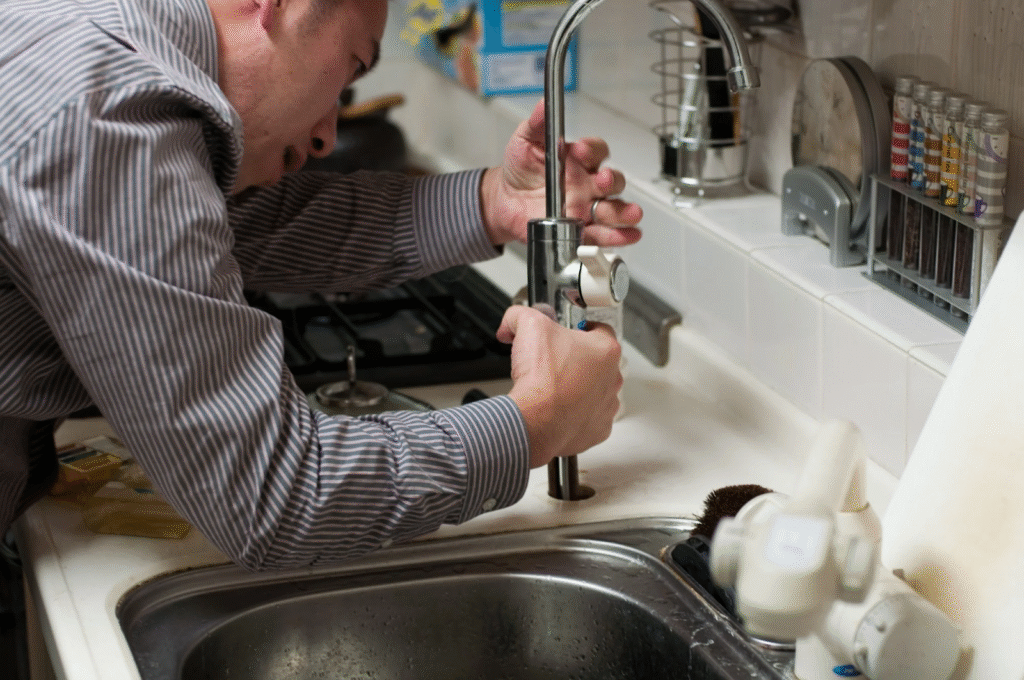Homeownership comes with rewards and responsibilities. While the idea of weekend projects and decorating may seem exciting, what truly protects your investment are consistent maintenance habits. Overlooking routine upkeep can lead to costly repairs, long-term damage, and a drop in your home’s value. Developing good habits and sticking to a schedule can save you time, money, and stress in the long run.
Every home, regardless of age or size, benefits from a proactive approach. Waiting for something to go wrong often leads to higher expenses and more invasive fixes. Instead, knowing what to look for and when to act keeps your home in top shape. These six habits are foundational to maintaining a safe, efficient, and long-lasting home environment.
Check and Replace Air Filters Regularly
Air filters play a bigger role in your home’s health than you might think. Not only do they trap dust, pollen, and other airborne particles, but they also protect your HVAC system from strain. When filters become clogged, airflow is restricted, causing the system to work harder. This results in higher energy bills, reduced air quality, and potentially costly mechanical issues.
Make it a habit to check your filters every month and replace them every one to three months, depending on usage and the type of filter. Homes with pets, smokers, or allergy sufferers may need more frequent replacements. Staying consistent with this simple task improves comfort, efficiency, and long-term system performance.
Inspect Your Roof and Gutters Seasonally
Your roof is the first line of defense against the weather, and neglecting it can lead to water damage, mold growth, and structural issues. Regular inspections help you catch minor problems—like missing shingles or cracked flashing—before they become major repairs.
Pair your roof check with a gutter cleaning. Clogged gutters cause water to pool on your roof or spill over near your foundation, increasing the risk of leaks and erosion. Clean gutters ensure that rainwater flows away from your home efficiently. It’s smart to inspect both areas in the spring and fall, and after major storms. For harder-to-reach spots or more complex issues, work with professionals like Landry Mechanical, who offer experienced guidance and service for everything from drainage concerns to full system evaluations. Their insight can help you avoid mistakes that might go unnoticed during a casual inspection.
Test Smoke and Carbon Monoxide Detectors
Safety devices like smoke alarms and carbon monoxide detectors are essential for protecting your family. Yet, they’re often forgotten until a chirping battery alert draws attention. These systems should be tested at least once a month and have their batteries replaced every six months, even if they’re still functional.
Go a step further and check the expiration dates printed on the units themselves. Most detectors have a life span of seven to ten years. Replacing them as needed ensures that you’re not relying on outdated equipment in an emergency. Keeping a simple checklist near your breaker panel or inside a utility cabinet makes this habit easy to track.
Monitor for Plumbing Leaks and Water Damage
Water damage is one of the most expensive problems to fix, especially when it goes undetected for long periods. Make it a point to check under sinks, behind appliances, and around toilets for signs of leaks or moisture. Even a slow drip can warp cabinets, damage flooring, or promote mold growth.
Unusual spikes in your water bill may also signal a hidden leak. If you suspect an issue, don’t delay. Catching it early could save you thousands in restoration costs. Periodically check exposed pipes in basements or crawl spaces for signs of condensation, corrosion, or discoloration as well.
Installing a water leak detector or smart monitoring system gives you added peace of mind, especially when traveling or away from home for extended periods.
Keep Your HVAC System Tuned Up
Your heating and cooling systems work hard year-round, so preventive care is critical. Schedule professional maintenance at least once a year, preferably before peak usage seasons in summer and winter. Technicians will inspect parts, clean coils, check refrigerant levels, and ensure the system runs at peak efficiency.
A well-maintained HVAC system uses less energy, breaks down less frequently, and lasts longer than one that’s ignored. Many companies offer service plans or reminders to help you stay on track. Following these appointments with simple tasks like cleaning around outdoor units or keeping vents clear of furniture also boosts system performance.
Seal Gaps and Improve Insulation
Small air leaks can add up to big energy losses. Over time, gaps around windows, doors, pipes, and vents let conditioned air escape and allow drafts inside. These leaks make your heating and cooling systems work harder and increase monthly utility bills.
Inspect the weatherstripping on doors and use caulk to seal visible cracks in siding or trim. Attic insulation is another area worth evaluating. Insufficient insulation allows heat to escape during winter and infiltrate during summer, making temperature regulation more difficult and expensive.
Improving your home’s envelope not only lowers energy costs but also creates a more comfortable living space year-round. Make it part of your seasonal checklist to check for signs of deterioration and address them promptly.
Maintaining your home is less about reacting and more about planning. The habits you build today can prevent the headaches and expenses of tomorrow. From checking filters to monitoring moisture and scheduling professional support, every small action adds up to significant protection. Homes thrive when cared for consistently. Developing a proactive maintenance mindset allows you to stay ahead of problems, safeguard your investment, and enjoy a safer, more efficient home every day.






